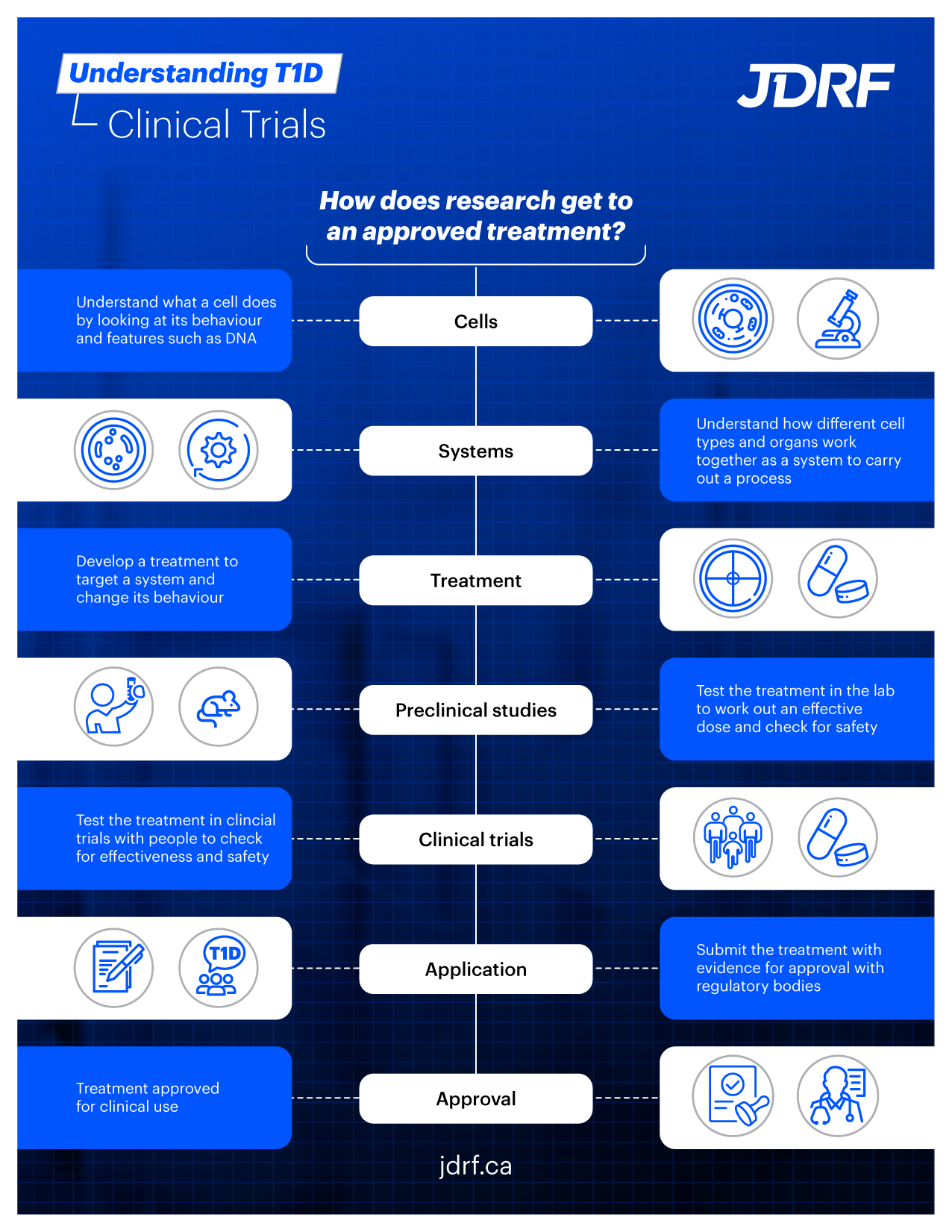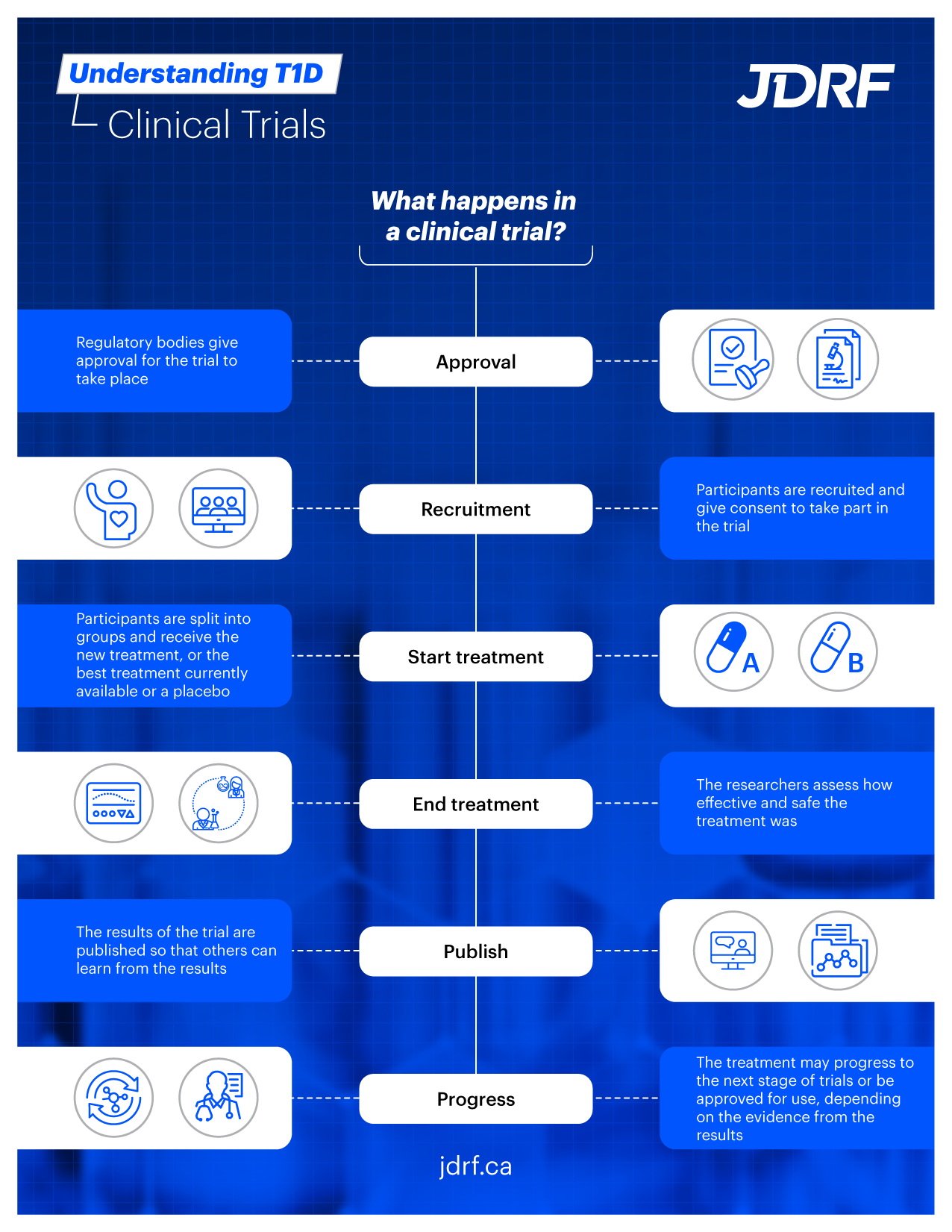
Participate in Research
Anyone who is considering participating in a research study or clinical trial is encouraged to speak with their health care provider(s) about the benefits and risks.
Research Collaboration Volunteers:
- Do you have a connection to T1D?
- Do you have an interest or background in scientific research?
- Would you like to contribute to research in the T1D field?
JDRF Canada’s Research Collaboration Volunteers (RCVs) are dedicated to staying up to date on T1D research and passionate about helping spread this knowledge. RCVs will work together to help promote diversity in T1D research, ensure that the community’s voice is heard, inform JDRF’s research programs and projects, and accelerate the translation of knowledge between researchers and the T1D community. If you are interested in joining this group, please email us at research@jdrf.ca for a full description of this volunteer role.
*Please note that although we greatly encourage non-English-speaking volunteers, at this time our research program is only presented in English, so basic command of the English language is required.

